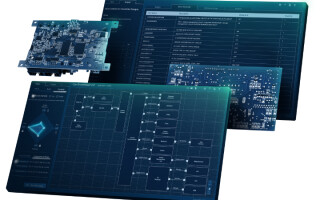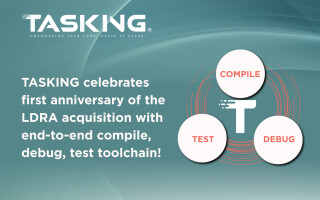Global Internet governance and the IoT
February 01, 2015

Many consider the Internet of Things (IoT) a revolution. If you've been in the embedded industry for any length of time, you probably consider it more...
Many consider the Internet of Things (IoT) a revolution. If you've been in the embedded industry for any length of time, you probably consider it more of an evolution than revolution. Since the advent of the microprocessor, the embedded industry has been creating embedded systems in virtually every industry with an ever-increasing level of sophistication. Graphics, storage, analysis, and management are all things that have progressed within the embedded realm. And of course communications between devices and systems has been happening in the embedded industry for well over 20 years.
As the Internet continues to mature, adding "on-ramp" technologies to embedded devices that enables communication over the Internet all of a sudden makes that device a member of the IoT family. We embedded developers tend to ignore all but the technological impact of our creations and often assume use cases and market needs will drive the technology to a useful end result.
However, there are other forces at work. The Global Commission on Internet Governance (GCIG) has been hard at work looking at the impact of the Internet and examining various issues that affect Internet governance (Figure 1). It is within the governance realm that all things Internet represent a revolution – there has been nothing like it to provide a basis of governance and the use cases and their implications have never before been seen.
If you're an Internet purist, you may be rolling your eyes right now at the thought of the government getting involved in legislation pertaining to the Internet. However, there are a number of social implications including Internet access, interconnection and economic development, surveillance, cybercrime and threats, and even human rights.
For example, a recent global survey on Internet security and trust conducted by the Centre for International Governance Innovation (CIGI), 83 percent of users believe affordable access to the Internet should be a basic human right. There are people thinking about the impact of the Internet and its corresponding access, security, and ethics implications.
By extension, IoT devices are not immune to the impact of Internet governance. These governance issues are not directly targeting IoT devices and applications, but many of the challenges and issues being addressed have IoT implications.
Government organizations
CIGI is an independent nonpartisan think tank that collaborates with policy, business, and academic communities around the world.
The CIGI recently released a brief called "Finding Common Ground: Challenges and Opportunities in Internet Governance and Internet-related Policy." It's a synopsis and commentary on the work of the GCIG. The GCIG was launched in January 2014 and has a two-year charter to produce a comprehensive stand on the future of multi-stakeholder Internet Governance.
The 64-page briefing book produced by CIGI provides a wide range of Internet-related governance topics such as addressing systematic risk and security issues, cybercrime and surveillance activities, protecting innovation, and governance between countries and jurisdictions relating to cloud computing, Big Data, and individual rights online. IoT feeds into all these topics, so the conclusions reached within the GCIG will impact IoT.
Internet governance concerns
The briefing book contains a lot of interesting challenges and opportunities relating to a wide variety of topics. While not explicitly called out, many could potentially relate to a wide variety of IoT and Industrial IoT applications. A few are discussed below:
- Intellectual property – The main concern involves content providers and the increasing involvement of individuals utilizing copyrighted content within their "free" videos. This may relate to IoT environments where the information being transmitted involves user information that may be carrying copyrighted information. Are you responsible for identifying this?
- Law enforcement cooperation – Network operators must comply with lawful intercept regulations to combat cybercrime and terrorist activity. As a company that provides an interconnected IoT environment, what if law enforcement requests information about specific users within your IoT system?
- Traffic shaping – There are network operators that own network infrastructure that re-sell access and bandwidth to their networks. One form of monopolizing the network is allocating a lower level of service to specific service providers thereby giving a competitive advantage to those that pay more for higher bandwidth. What happens if networks interconnecting your IoT application don't provide enough bandwidth for satisfactory operation? Do you have recourse?
- Data sales – A huge motivating factor these days is Internet user network data access for marketing and sales purposes. IoT promises to provide a landslide of data about the users of these IoT devices from geo-location to their online activities, perspectives, and preferences. As an IoT developer, how much information are you allowed to collect on the user of the application? What responsibilities do you have about protection or access of this information that could be used for sales and marketing purposes?
- Tarrifs, jurisdiction – Internet services and interactions are global. Endpoint to endpoint and all the hops in between make services tariffs and jurisdiction challenging. Internet commerce may or may not be taxable. If it is, what are the tax implications for your IoT application?
Internet governance is a hot topic worldwide from security and economics to human rights and access. These uncharted waters will begin to take form over the next few years as global government regulators look at the issues and propose legislation to address them.






